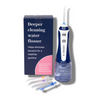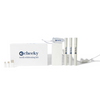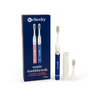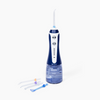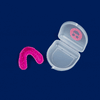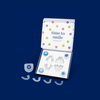Teeth grinding, also known as bruxism, is a common condition that affects many people. The causes of teeth grinding can range from stress to misaligned teeth, but recent research has revealed a surprising link between the use of certain antidepressants and this habit. In this article, we will discuss the connection between antidepressants and teeth grinding, and what you can do to prevent it.
What is Teeth Grinding?
Teeth grinding is a habit where a person unconsciously clenches and grinds their teeth, often during sleep. This can result in significant damage to the teeth, including cracks, chips, and even tooth loss. Bruxism can also cause jaw pain, headaches, and other dental problems.
The Connection between Antidepressants and Teeth Grinding
Antidepressants are a type of medication that is used to treat mental health conditions such as depression, anxiety, and panic disorders. However, the changes in brain chemicals that these medications bring about can also result in bruxism.
Studies have shown that certain types of antidepressants, including selective serotonin reuptake inhibitors (SSRIs) and tricyclic antidepressants (TCAs), are more likely to cause teeth grinding than others. In particular, those taking high doses of SSRIs have a higher risk of developing this habit.
How to Prevent Teeth Grinding Caused by Antidepressants
If you are taking antidepressants and experiencing symptoms of teeth grinding, there are several steps you can take to prevent it:
- Talk to your doctor: If you are experiencing symptoms of bruxism, it is important to discuss it with your doctor. They may be able to adjust your dose or switch you to a different type of antidepressant that is less likely to cause this habit.
- Use a mouthguard: Wearing a mouthguard while you sleep can protect your teeth from damage caused by grinding. Custom-fitted mouthguards are the most effective, but over-the-counter options are also available.
- Manage stress: Stress and anxiety can trigger or worsen teeth grinding, so it is important to find ways to manage stress. This can include exercise, meditation, and deep breathing.
- Avoid triggers: If you are aware of what triggers your teeth grinding, try to avoid these triggers as much as possible.
In conclusion, the connection between antidepressants and teeth grinding is well established. If you are taking antidepressants and experiencing symptoms of bruxism, it is important to talk to your doctor and take steps to prevent it, such as using a mouthguard and managing stress. By doing so, you can protect your teeth and maintain good oral health.
The Easy Way to Take Care of Bruxism and TMD
Cheeky makes it easy and affordable to say sayonara to the pain and tension accompanying TMD and bruxism. Never deal with gross night guards again! Our custom nightguards will give you the best night of sleep you’ve had in months.
Pick your plan and customize your nightguard with Cheeky today.
